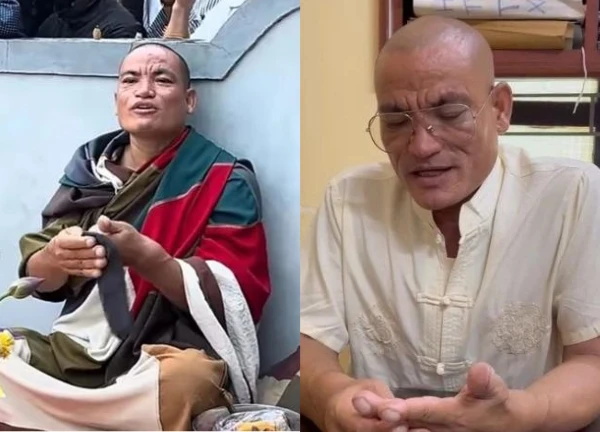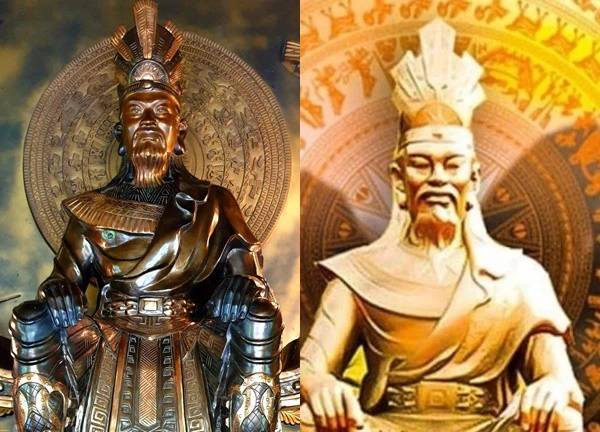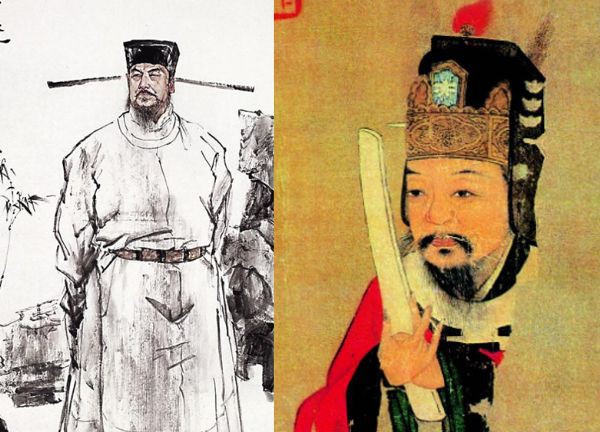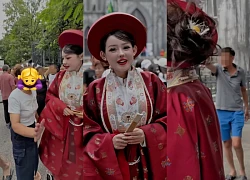Pam Yeu Oi turns on "glaring" mode to fans, Salim's mother has an unstable birthday because of her daughter

1 | 1 Discuss | Share
Vietnamese history records a unique case where a famous general of the Later Le Dynasty had a lowly origin, even a prisoner. He was Dinh Van Ta, from Ham Giang village, Hai Duong province.
Since childhood, Dinh Van Ta was famous for being strong but aggressive. When he was a little older, Dinh Van Ta played with the thugs and was elected by them to be the leader.
One day, while the group was playing, they heard the sound of gongs and drums worshiping the gods on the other side of the river. Then they swam across the river, sneaked into the communal house, stole the gongs, and swam back. Halfway along the road, Dinh Van Ta was so happy that he beat the gongs loudly. The villagers who knew the gongs were missing chased after them, but unfortunately it was too late.
But in the end, Dinh Van Ta was imprisoned in Dong Mon prison. The court was recruiting soldiers at that time. Lord Trinh ordered the generals to practice shooting at Ngu Long tower. Seeing that the generals' shots were all off, Dinh Van Ta laughed at them. They challenged this "prisoner" to try shooting. Unexpectedly, after 3 gunshots, 3 targets broke. Everyone present looked at Dinh Van Ta in amazement, acknowledging his talent.
The news reached Lord Trinh, who ordered Dinh Van Ta to be pardoned and sent to battle. On the battlefield, Dinh Van Ta made a series of achievements and was awarded the title of Duke. However, when he had a high position, he asked to be returned to the king, only hoping to have his name removed from the criminal record. The king not only agreed but also kept the title of Duke for this general.
It is said that during the reign of King Le Hy Tong, Mac Kinh Vu and his followers were still causing chaos in Cao Binh. Dinh Van Ta led a large army to defeat the Mac dynasty. After that, Mac Kinh Vu had to flee to Long Chau, and the Mac dynasty officially ended.
When Dinh Van Ta was 80 years old, he became seriously ill. Knowing this, Lord Trinh personally visited the great general and asked him what his wishes were. He replied: "If only you had appointed me as the God of Fortune while I was still alive, I would have no regrets when I closed my eyes."
Indeed, Lord Trinh immediately ordered someone to draft a decree to confer on Dinh Van Ta the title of village tutelary god. After thanking the Lord, the famous general also passed away, at the age of 87. That year was At Suu, Chinh Hoa era (1685). After Dinh Van Ta's reign, his descendants continued the tradition, becoming famous generals in battle. Currently, in Hai Duong city, there is still a cluster of communal house, mausoleum, and temple relics worshiping Dinh Van Ta.
The Dinh Van Ta communal house, mausoleum and temple complex in Quang Trung ward (Hai Duong city) where he is worshipped was granted a certificate of recognition as a national historical and cultural relic site in 1993. Currently, the relic site still has 15 steles talking about General Dinh, of which 7 were engraved and erected when the General was still alive. The authors of these steles were mostly great Confucian scholars of the time.
Dinh Van Ta was born on November 26, the year of Ky Hoi, the 2nd year of Quang Hung (1599). His father was Dinh Van Phu, who had contributed to the defeat of the Mac dynasty and was awarded the title of Hung district duke. His mother was Nguyen Thi Nang, famous for her gentleness and kindness, and was honored as a virtuous mother during her lifetime. Before the age of 2, Dinh Van Ta lost his father and was brought up by his mother in Han Giang until adulthood.
The life of General Dinh Van Ta is associated with military achievements in defeating the Nguyen Dynasty in the South and the Mac Dynasty in the North, and the rebellion of some mandarins in the Le Dynasty and Trinh Lords' courts. With 74 battles, his name is recorded in history books and famous among the people.
In the book "Tang thuong ngau luc" written by two close friends Pham Dinh Ho and Nguyen An around the end of the 18th century to the beginning of the 19th century, there is a passage about Dinh Van Ta as follows: During the Le Trung Hung period, in Ham Giang village, Hai Duong province, there was a man named Dinh Van Ta, strong in stature and aggressive in temperament. When he was young, he often played with thugs and was elected by them to be the eldest brother.
Next to the village was a large river more than a mile wide, every day he and his friends went swimming. One day, when they heard the sound of gongs and drums worshiping the gods on the other side of the river, he and his friends challenged each other to swim across the river to steal the gong from the other village and bring it back. Immediately after that, Dinh Van Ta waded into the river, swam to the other side, sneaked into the communal house and stole the gong, brought it out, then went back into the river and swam back. When he reached the middle of the river, he still beat the gong so loudly that the whole river could be heard, only then did the other village know that the gong had been stolen and tried to find a boat to chase after it but could not catch up.
Later, because he was caught red-handed committing a crime, Dinh Van Ta was imprisoned in Dong Mon prison. At that time, the court was using troops, Lord Trinh ordered the military generals to practice shooting at Ngu Long tower. Dinh Van Ta and the prison guard stood watching and saw that few people hit the target, so he laughed and said: "The target is so obvious but they can't shoot, why are they so cowardly?". The generals standing shooting were very angry when they heard the noise, they gave Van Ta guns and said: "What are you bragging about, here are the guns, try shooting!".
Dinh Van Ta shot three times and broke three targets. All the witnesses agreed that he was a talented person. After that, the soldiers asked him to try shooting again and this time he hit every shot. The news reached Lord Trinh, who forgave him and let him join the fight. Later, he made many achievements and was appointed by Lord Trinh as a Duke. However, Dinh Van Ta returned the decree and refused to accept it, only asking to have his name removed from the record book, but Lord Trinh still granted the title.
The areca-nut shaman "admitted right but argued wrong" and failed to appeal her innocence, "served time" for 7 years and 3 months.  Tuyết Ngọc20:39:59 12/09/2024Taking advantage of people's superstition to get money, the fortune teller who told fortunes rightly admitted it, and if wrongly argued, officially paid the price. Thus, her previous efforts to appeal her innocence were in vain.
Tuyết Ngọc20:39:59 12/09/2024Taking advantage of people's superstition to get money, the fortune teller who told fortunes rightly admitted it, and if wrongly argued, officially paid the price. Thus, her previous efforts to appeal her innocence were in vain.

1 | 1 Discuss | Share

3 | 1 Discuss | Share

5 | 1 Discuss | Share

3 | 1 Discuss | Share

3 | 1 Discuss | Share

3 | 1 Discuss | Share

5 | 1 Discuss | Share

4 | 1 Discuss | Share

2 | 1 Discuss | Share

5 | 0 Discuss | Share

1 | 0 Discuss | Share

2 | 0 Discuss | Share










3 | 1 Discuss | Report